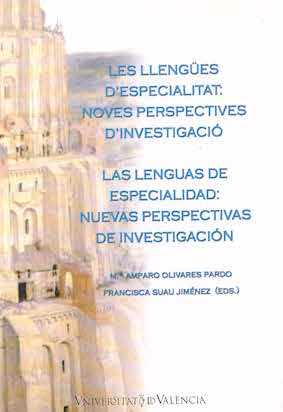Protocolos comunicativos en la promoción de servicios turísticos
DOI:
https://doi.org/10.7203/qfilologia.10.5089Paraules clau:
protocols comunicatius, discurs turístic en Internet Resum
Resum
L'objectiu del present article és l'estudi dels protocols visuals i lingüístics utilitzats en la promoció dels serveis turístics a través d'Internet, prestant especial atenció als elements visuals i a les estratègies de cortesia necessàries per crear una imatge de marca atractiva i una promoció eficaç. El corpus ho compon una mostra de pàgines web de promoció de serveis turístics. El treball consta de dues parts fonamentals: en la primera es defineix el concepte de “protocol comunicatiu”, es destaquen les peculiaritats bàsiques de la promoció en la indústria turística i s'exposen els trets essencials del discurs persuasiu i la cortesia lingüística necessaris per abordar l'anàlisi d'aquest gènere comunicatiu. En la segona part del treball, es proposa i exemplifica un model d'anàlisi dels protocols comunicatius visuals i textuals que operen en aquest tipus de documents. L'avaluació dels resultats obtinguts dóna pas a les conclusions
 Descàrregues
Descàrregues
Descàrregues
Publicades
Com citar
-
Resum559
-
PDF (Español)336
Número
Secció
Llicència
 Este obra está bajo una licencia de Creative Commons Reconocimiento-NoComercial-SinObraDerivada 4.0 Internacional.
Este obra está bajo una licencia de Creative Commons Reconocimiento-NoComercial-SinObraDerivada 4.0 Internacional.
Tots els documents inclosos a OJS són d'accés lliure i propietat dels seus autors i/o institucions editores, i per tant, qualsevol acte de reproducció, comercialització, comunicació pública o transformació total o parcial necessita el consentiment exprés i escrit d'aquests.
Authors who publish with this journal agree to the following terms:
- Authors retain copyright and grant the journal right of first publication with the work simultaneously licensed under a Creative Commons Attribution License that allows others to share the work with an acknowledgement of the work's authorship and initial publication in this journal.
- Authors are able to enter into separate, additional contractual arrangements for the non-exclusive distribution of the journal's published version of the work (e.g., post it to an institutional repository or publish it in a book), with an acknowledgement of its initial publication in this journal.
- Authors are permitted and encouraged to post their work online (e.g., in institutional repositories or on their website) prior to and during the submission process, as it can lead to productive exchanges, as well as earlier and greater citation of published work (See The Effect of Open Access).



